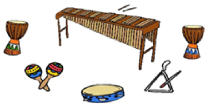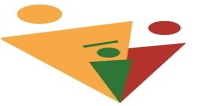Divided Paths: How Homeschoolers in South Africa Are Navigating the BELA Act's Registration Debate
Before the BELA Bill was signed into law, the home education movement was united in its opposition to the bill. However, after the president signed the bill, and it became law, two distinct perspectives on home education registration and the BELA Act are emerging.
The first advocates for homeschooling freedom through "lawful non-compliance," arguing that there are valid reasons why failure to register may not be prosecutable. The additional restrictive registration conditions in the Act actually create more reasons not to register instead of less. It emphasizes that, historically, education departments have shown little ability or desire to enforce registration, and even the Department of Basic Education (DBE) has admitted that the severe penalties are disproportionate for such an administrative omission. Furthermore the cumbersome enforcement process prescribed by the law is difficult to implement in practice.
The second highlights the potential risk of prosecution, asserting that the BELA Act has closed legal loopholes. It is stated that "The BELA Act 2024 now closes all possible legal gaps ...". There are no more valid reasons not to register. This perspective advises compliance to avoid harsh penalties, with the idea that freedom can be gradually expanded through litigation where rights are unjustly limited.
The first approach seeks maximum freedom with minimal litigation, leveraging the state's weaknesses. It tends to be favored by activists who prioritize freedom and see non-compliance as a form of resistance. The second approach leans toward compliance with the law, followed by legal challenges, and is often preferred by legal professionals focused on obtaining clarity through the courts.
In the interest of unity, it’s important to acknowledge that both approaches have merit. Parents should be presented with both perspectives, allowing them to choose the approach that best suits their values and risk tolerance.

Legal & Research
Homeschooling and the law
Home schooling was recognized in 1996 in Section 51 of the SA Schools
+ ViewCentres
Homeschool ABC
Support
Curriculums
Cambridge & International ...
As of 1 January 2025, Macmillan Education is the sole agent ...
Impaq: Homeschool & Online ...
Impaq: The leading homeschooling curriculum provider in South ...
Frequently Asked Questions
-
Is home education often used as a smoke screen to hide child neglect?
State interference in home education is often justified as something that can identify situations where home education is used as a smoke screen to...
-
Where can I find homeschool support groups?
There are many support groups consisting of parents that do things together and help each other. These groups operate on Facebook, mailing lists and...
-
What is home education or homeschooling?
Home education is the oldest form of education. The school system as we know it is actually fairly new. It is done under the guidance and the...
-
Do I need to be a qualified teacher?
No. Research has found no correlation between the qualification of the parent and the academic performance of the child. Research shows that...
Has no content to show!

































Comments